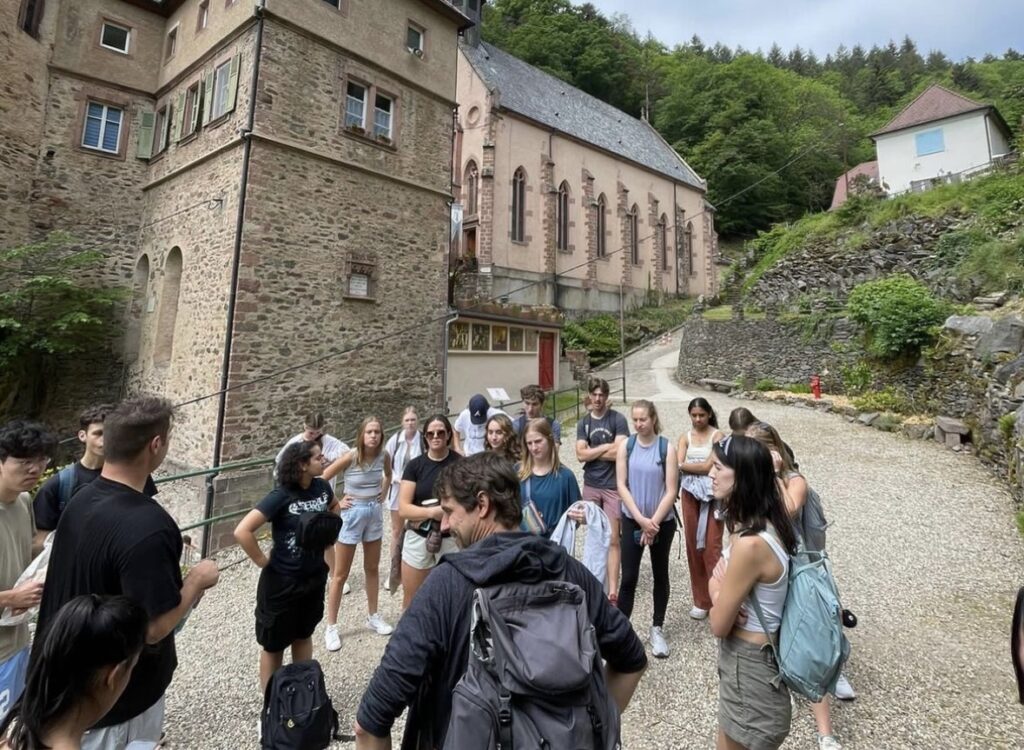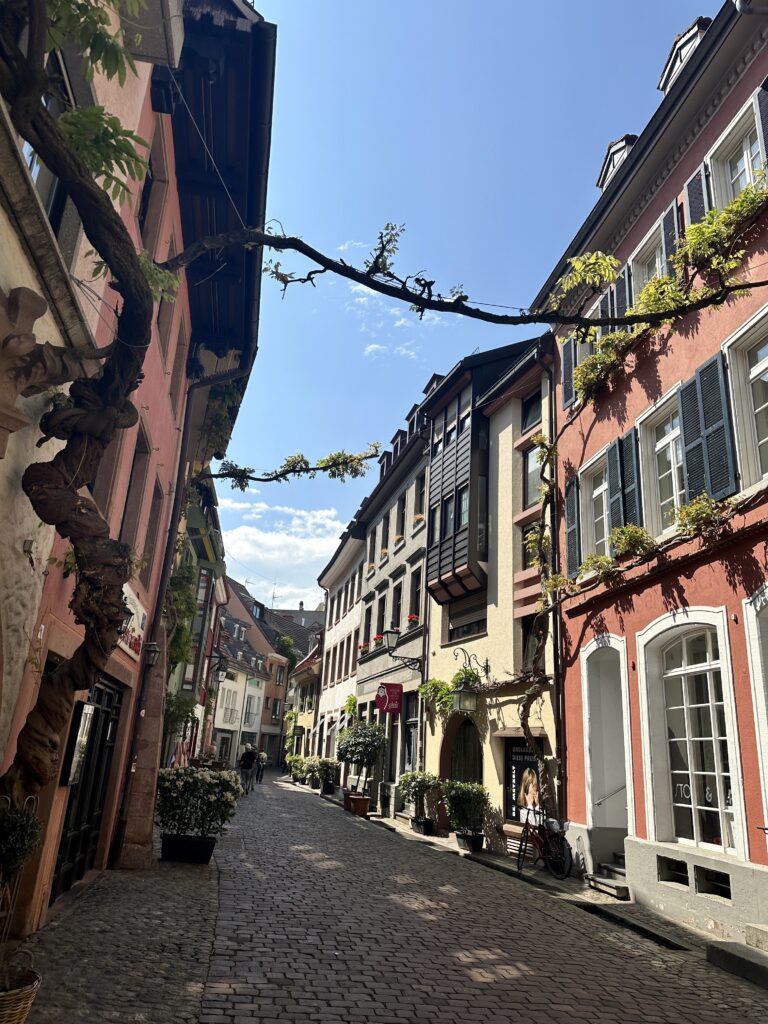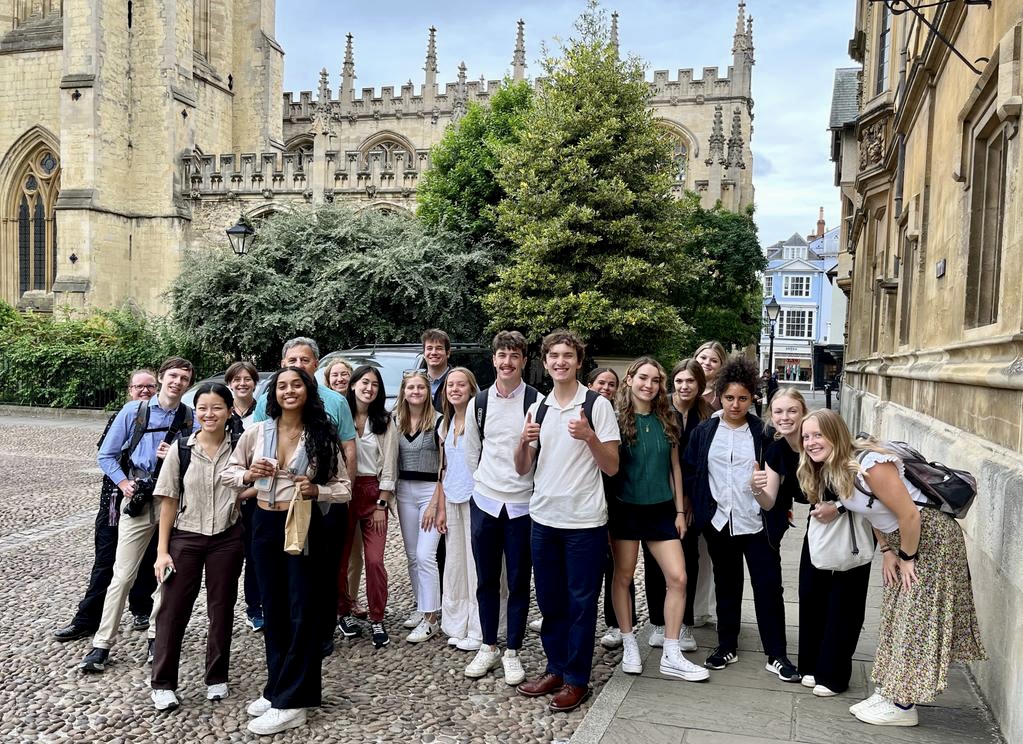 By Ashley Titus
By Ashley Titus
Ashley Titus is currently a junior at UNC-Chapel Hill majoring in Environmental Science and Neuroscience. She participated in a six-week UNC Honors Burch Research Seminar to Germany, the Netherlands, and the UK. The focus of the seminar was sustainability and clean energy systems.
Wind turbines towered over me as I stood in the middle of a wind farm in the Black Forest Community. I was awed by the sheer scale of these structures, and even more awed with the amount of renewable energy they generated. The rhythmic rotation of the turbine blades set the trip into motion. Twenty fellow UNC students spent the summer studying alongside me while we explored sustainability in the context of European nations. Led by Professors Adam Lovelady and Greg Gangi, we analyzed the complexities involved with solving environmental challenges and discussed potential avenues to address these issues in the United States.

Global Perspectives on Sustainability
The trip started in Germany where we learned about the intricacies of urban planning. We witnessed how cities such as Freiburg, Rieselfeld, Vauban, and Basel were designed for a future where sustainability is commonplace. Our path eventually led us to the Château du Haut-Kœnigsbourg, a medieval castle that introduced us to the influence of geography and architecture. An unexpected, yet impactful, lesson we learned was about the pivotal role research institutions played in furthering renewable energy goals. After we visited Pfizer and
IKA, it was clear how academia and laboratories drive innovation where clean energy is the part of the goal. Additionally, I was impressed by the stately presence of Strasbourg as the seat of the European Parliament and the power of collective vision. Overall, Germany told a story from each stone on the cobblestone streets to the advanced solar technology.
Growing up in Charlotte, North Carolina, I was excited to see a big city embracing multimodal transit. The UK has a vision to seamlessly integrate heritage and climate innovation.

Our next stop took us on a night train to Rotterdam, Netherlands. Here, sustainability extended beyond energy to resilient infrastructure and forward-thinking design. As a city that was destroyed in the war, Rotterdam embraced the opportunity to rebuild itself in a new way. We also saw BlueCity, a former swimming pool that had been transformed into an ideal breeding ground for circular entrepreneurs. We witnessed innovation from using discarded materials with businesses intertwining to create a sustainable ecosystem. Finally, we saw the Amsterdam canal networks and cycling lanes that crisscrossed the city. This furthered our conversation into the concept of sustainable transportation.
Our final destination was London, a city that was once very unsustainable, but now has incorporated current ecological solutions. Growing up in Charlotte, North Carolina, I was excited to see a big city embracing multimodal transit. The UK has a vision to seamlessly integrate heritage and climate innovation. During this time, we attended the offshore wind conference hosted by RenewableUK. Additionally, we saw Orsted’s offshore wind farms that were icons of clean power. Having conversations with companies such as HYCAP and Supercritical Solutions really highlighted the progress in energy storage and efficiency tech.

Interdisciplinary Insights
During the first few days of our trip, instead of immediately diving into the world of renewable energy, we found ourselves at the Pfizer facility. While we were here, a dedicated team shared their efforts in making pharmaceutical manufacturing more sustainable. This unexpected beginning served as a reminder that sustainability is not confined to a single industry; it’s a philosophy that can be applied across disciplines. This experience opened my eyes to possible overlaps between environmental science with my other major in neuroscience.
Likewise, the later interactions I had with fellow students majoring in diverse fields from computer science to economics emphasized how sustainability is a multifaceted challenge that requires a holistic approach.
Final Thoughts
Throughout my study abroad trip, I was captivated by the contrasts between Europe and the United States. Personally, this experience provided me a space to explore how fields such as neurology, psychology, and medicine intersect with sustainability and energy. As I stood immersed in these clean energy landscapes, I couldn’t help but feel a sense of appreciation for the collective global efforts. Across these destinations, we learned how sustainable innovation hinges on unity of history, advancement, education, and industry. Each place we visited, each discussion we had, and each person we met added to our shared journey. I left the program with an understanding of complex environmental systems, a photojournalism project full of greenery, and several new friends.
For more information about environmental experiential opportunities at UNC visit: https://ie.unc.edu/education/field-sites/

